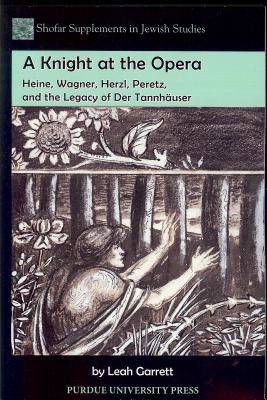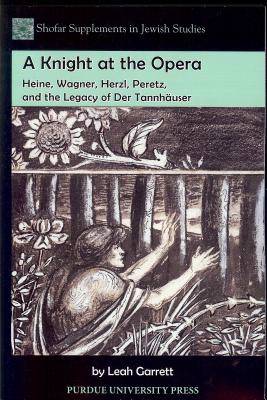
- Afhalen na 1 uur in een winkel met voorraad
- Gratis thuislevering in België vanaf € 30
- Ruim aanbod met 7 miljoen producten
- Afhalen na 1 uur in een winkel met voorraad
- Gratis thuislevering in België vanaf € 30
- Ruim aanbod met 7 miljoen producten
Zoeken
€ 67,95
+ 135 punten
Omschrijving
A Knight at the Opera examines the remarkable and unknown role that the medieval legend (and Wagner opera) Tannhäuser played in Jewish cultural life in the nineteenth and early twentieth centuries. The book analyzes how three of the greatest Jewish thinkers of that era, Heinrich Heine, Theodor Herzl, and I. L. Peretz, used this central myth of Germany to strengthen Jewish culture and to attack anti-Semitism. In the original medieval myth, a Christian knight lives in sin with the seductive pagan goddess Venus in the Venusberg. He escapes her clutches and makes his way to Rome to seek absolution from the Pope. The Pope does not pardon Tannhäuser and he returns to the Venusberg. During the course of A Knight at the Opera, readers will see how Tannhäuser evolves from a medieval knight, to Heine's German scoundrel in early modern Europe, to Wagner's idealized German male, and finally to Peretz's pious Jewish scholar in the Land of Israel. Venus herself also undergoes major changes from a pagan goddess, to a lusty housewife, to an overbearing Jewish mother. The book also discusses how the founder of Zionism, Theodor Herzl, was so inspired by Wagner's opera that he wrote The Jewish State while attending performances of it, and he even had the Second Zionist Congress open to the music of Tannhäuser's overture. A Knight at the Opera uses Tannhäuser as a way to examine the changing relationship between Jews and the broader world during the advent of the modern era, and to question if any art, even that of a prominent anti-Semite, should be considered taboo.
Specificaties
Betrokkenen
- Auteur(s):
- Uitgeverij:
Inhoud
- Aantal bladzijden:
- 147
- Taal:
- Engels
- Reeks:
Eigenschappen
- Productcode (EAN):
- 9781557536013
- Verschijningsdatum:
- 15/08/2011
- Uitvoering:
- Paperback
- Formaat:
- Trade paperback (VS)
- Afmetingen:
- 152 mm x 229 mm
- Gewicht:
- 249 g

Alleen bij Standaard Boekhandel
+ 135 punten op je klantenkaart van Standaard Boekhandel
Beoordelingen
We publiceren alleen reviews die voldoen aan de voorwaarden voor reviews. Bekijk onze voorwaarden voor reviews.











